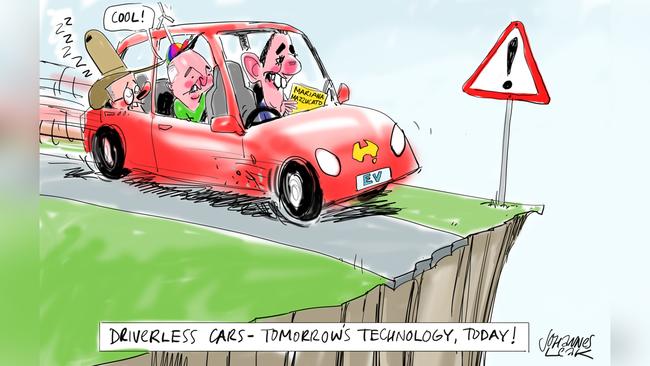
In the absence of a credible explanation from the minister for rejecting the advice of her department and the Orange Local Aboriginal Land Council, however, we must assume the rejection was motivated by short-term political expediency, like almost every other decision this government has taken.
The curse of short horizons can afflict even the best prime ministers. Yet, as Paul Kelly wrote in The Weekend Australian, the Albanese government betrays no ambition for long-term reform. It betrays little ambition for anything beyond winning the next election and is increasingly absorbed by the inner-metropolitan contest with the Greens.
In the process, it is destroying confidence in Australia among investors who crave certainty. Blayney is just the latest example of the asymmetrical, counterfactual, subprime decision-making that has become the hallmark of the Albanese administration. It has seized the commonwealth’s regulatory powers as a tool to prosecute an ideological agenda.
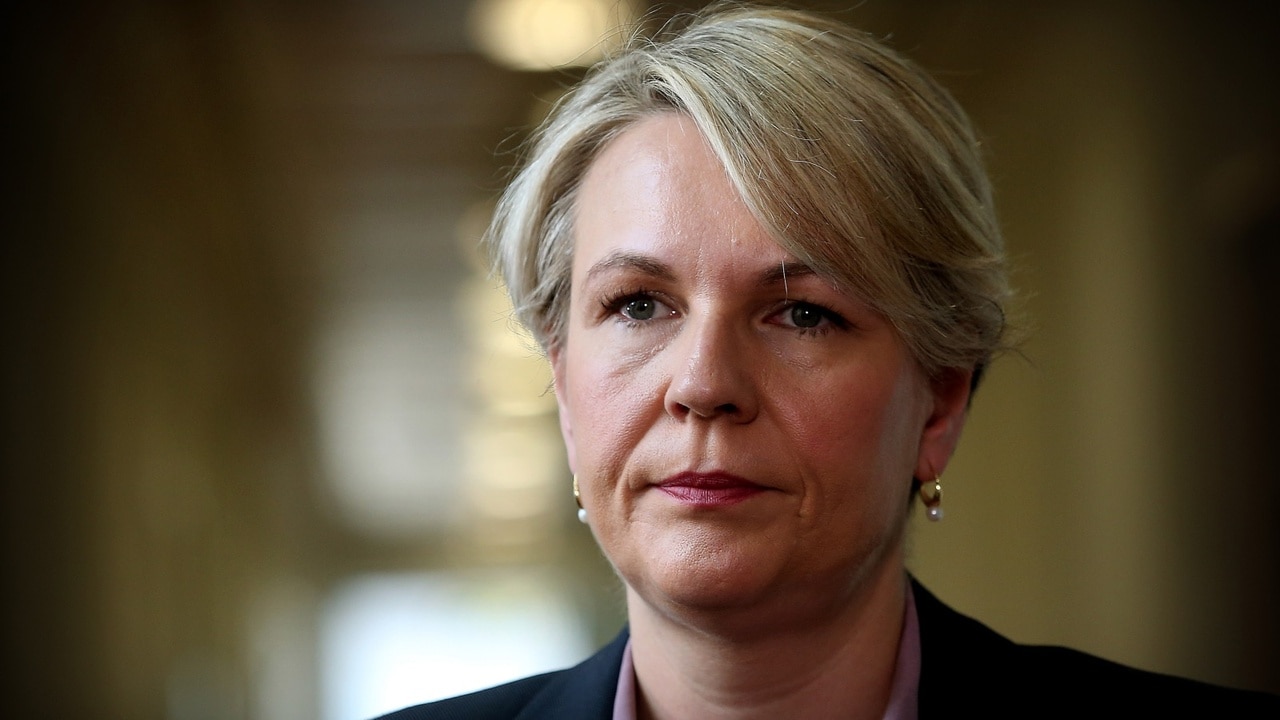
Wind turbine developments that destroy vast areas of native bushland are rubber-stamped, while coal, gas and uranium extraction proposals face years of expensive compliance.
It’s little wonder investors are turning to countries with predictable rules. The Blayney decision was widely reported abroad as evidence of Australia’s increased sovereign risk.
The worst effects of this government-induced investment drought won’t be apparent for a decade, when the mining proposals blocked today would be up and running, generating employment and royalties that could have lightened the tax burden on families and businesses.
We can predict with some confidence that Anthony Albanese won’t be in power in 2034 and won’t have to face the repercussions from his myopic, ill-conceived policy decisions, nor be accountable to future generations bequeathed fewer opportunities than their predecessors and a mountain of government debt frittered away on poorly designed, wasteful and inefficient programs like the NDIS.
Arguably the most serious casualty of today’s short-term policy thinking will be our energy system, the bedrock of our economy and the enabler of modernity. Energy Minister Chris Bowen says nuclear power is too expensive and takes too long to build. He is right if he is looking for a return before the next election, but wrong if we consider setting ourselves up for the next 100 years.
In Europe and the US, the expected lifespan of many pressurised water reactors has been extended to a century at least. That is as true for a 40-year-old Soviet-designed reactor in Hungary as a state-of-the-art reactor. When the Hungarian reactors were built in the 1980s, engineers could not be sure how quickly they would wear out. Four decades later, they are convinced that they’re good for the next 40 years.
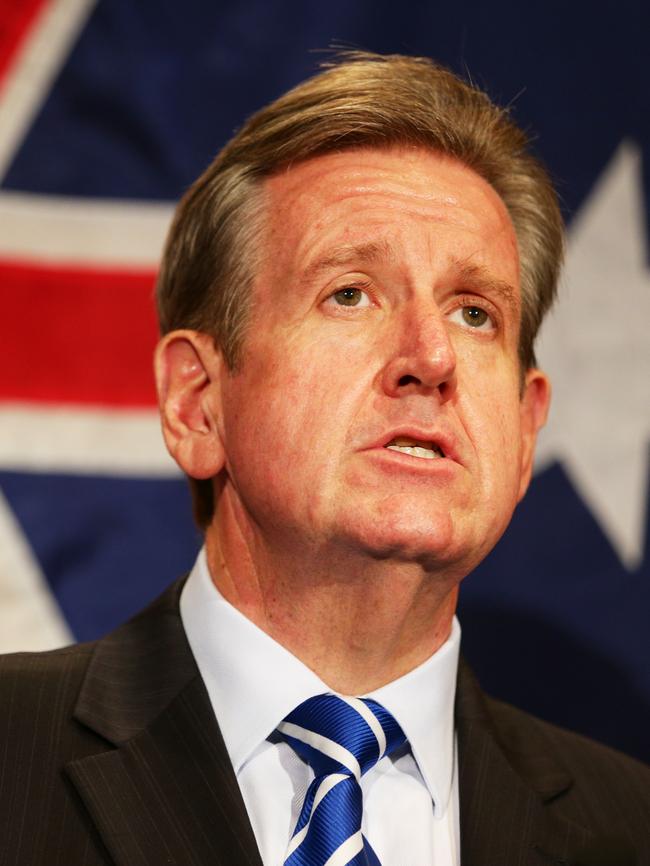
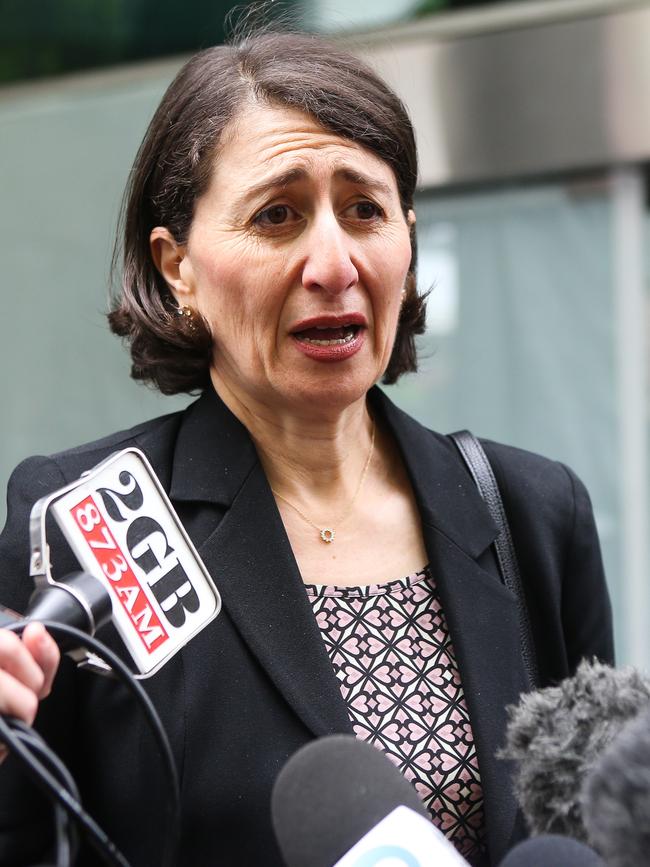
That’s why the CSIRO’s GenCost report is worthless. The cost of a nuclear reactor built in Australia today should be amortised over a century to assess its actual value, yet the boffins at the CSIRO have not tried to do so. Perhaps they don’t think it’s relevant a nuclear reactor planned today is likely to be still generating carbon-free electricity in 2130.
Unlike the CSIRO, politicians at least have an excuse for short-term thinking. Their precarious employment conditions make it hard for them to conceive of any reward outside the election cycle. Private investors make assumptions of an asset’s present value: the sum of anticipated future benefits discounted for the delay in receiving them. Conversely, politicians are unrestricted by the ramifications of their actions beyond the next election.
Yet long-sighted government is not impossible, even as digital technology compresses attention spans. The Sydney metro extension that opened last month is an engineering and architectural marvel, representing a 100-year investment in the city’s future. The grandeur of its vaulted and majestic subterranean spaces surpasses any urban transport system in the world.
It cost $23bn to build and was $9bn over budget. Yet passengers in 50 or 100 years will see that investment the same way Sydney motorists today see the $6.5m spent to build the Sydney Harbour Bridge, equivalent to roughly $1.4bn in 2024. For the sake of Australia’s future, we need fewer unserious people in charge and more who think like John Bradfield, the visionary NSW Director of Public Works who transformed Sydney in the 1920s and 1930s with the Harbour Bridge and urban rail developments.
The Liberal-led government in NSW showed how that could be done between 2010 and 2022 by constructing not just the Sydney Metro extension but underground motorways, including the second-longest road tunnel in the world, traffic-light-free journeys from the Sydney CBD to the Victorian and Queensland borders and the foundations of a second Sydney airport with associated development.
The O’Farrell, Baird, Berejiklian and Perrottet administrations were not without their faults. Yet the selfless actions of premiers who were prepared to pursue future-proofed infrastructure projects with no expectation they’d be in office when it was time to cut the ribbon stands in stark contrast to the Albanese government.
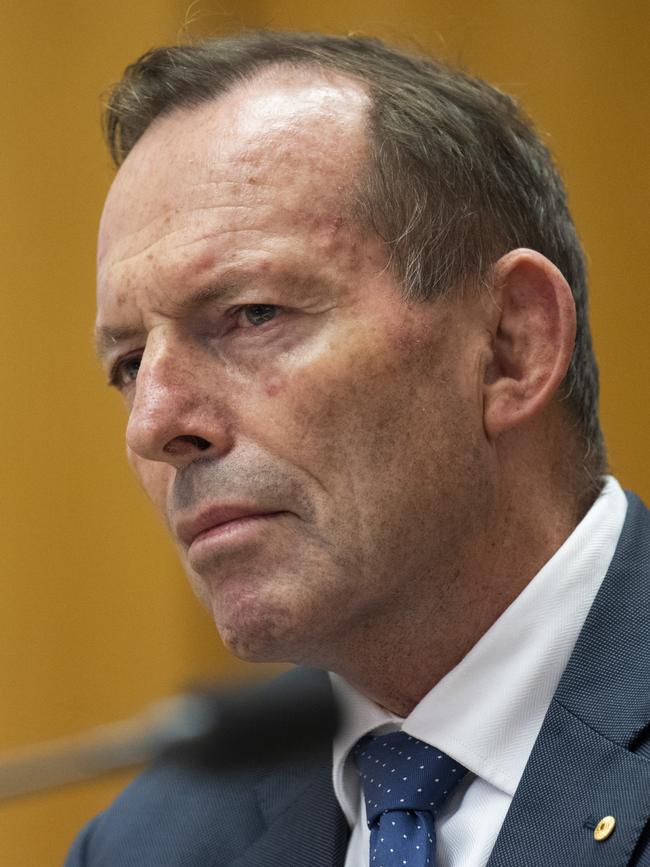
Zero-2050 is a slogan, not a serious reform goal. It will remain so until Labor can outline a credible path to achieve it and tell us how much it will cost. Right now, it is nothing other than a device to persuade electors that the government is serious about doing more to stop climate change, whatever that more might be.
As a footnote to Kelly’s column lamenting the absence of seriousness in federal politics, it is poignant to note that it was published 11 years to the day since the election of Tony Abbott’s government.
Abbott was the last prime ministerial candidate to seek a mandate for serious reform. The intellectual foundations of his policy proposals were detailed in his book Battlelines. It was the most serious attempt to articulate a reform agenda since Robert Menzies’ Forgotten People essays. Abbott was also the last PM to achieve a double-digit majority in the House of Representatives: 90 seats to be exact, compared to Labor’s 55. Coincidence? Almost certainly not.


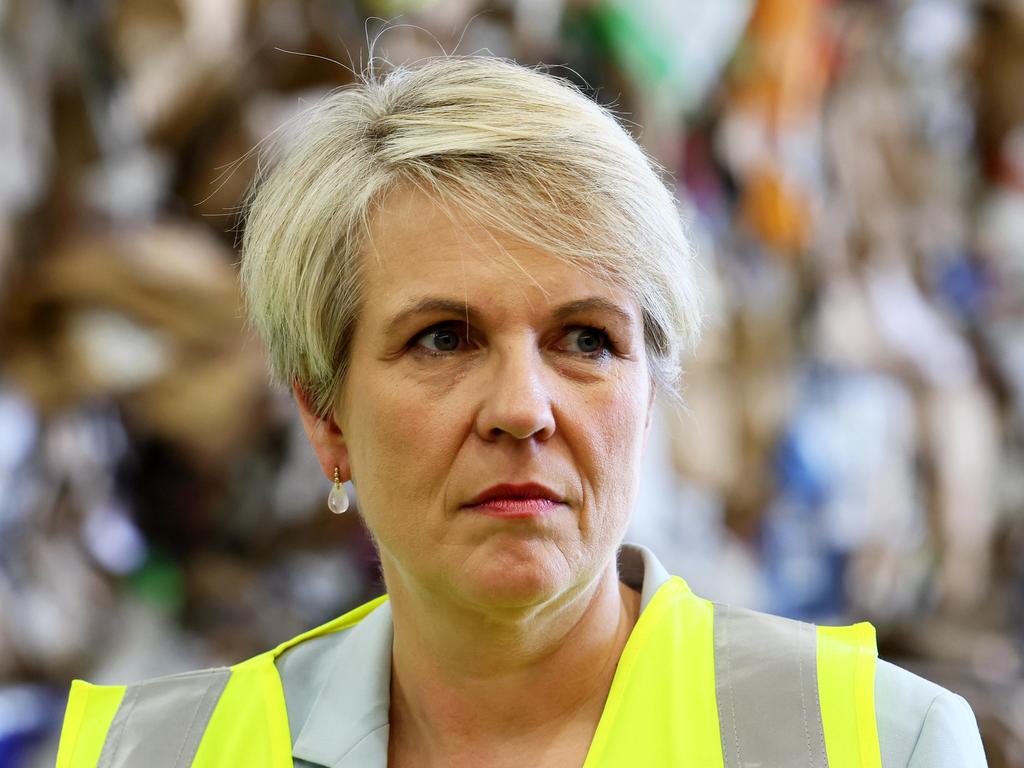
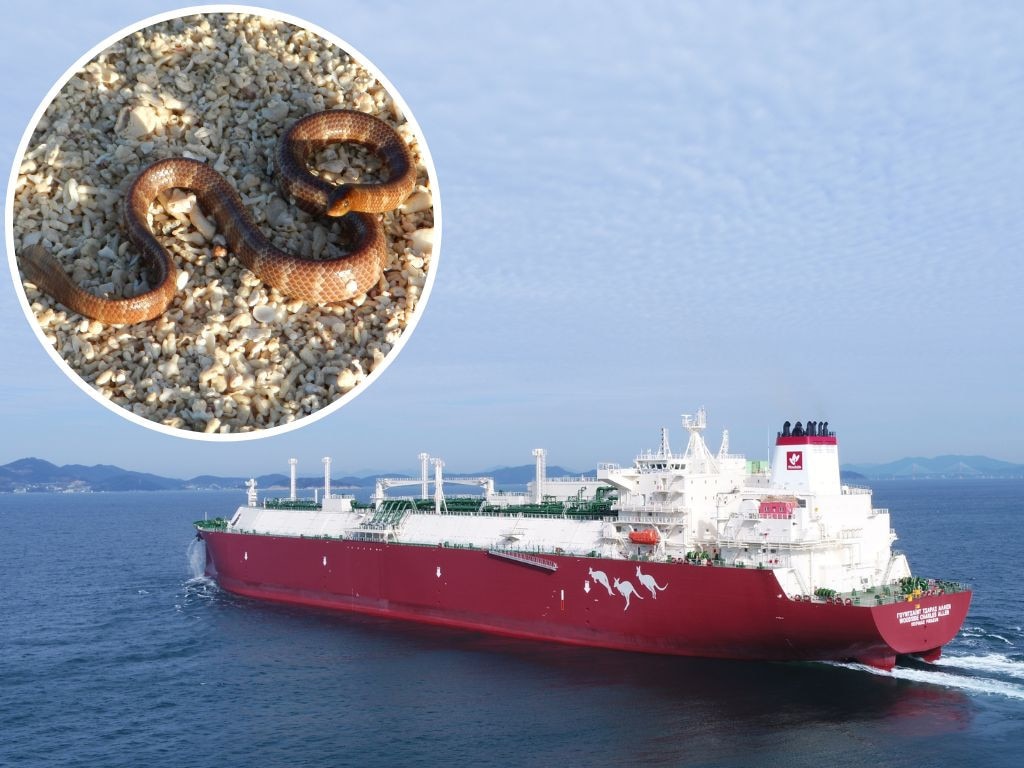
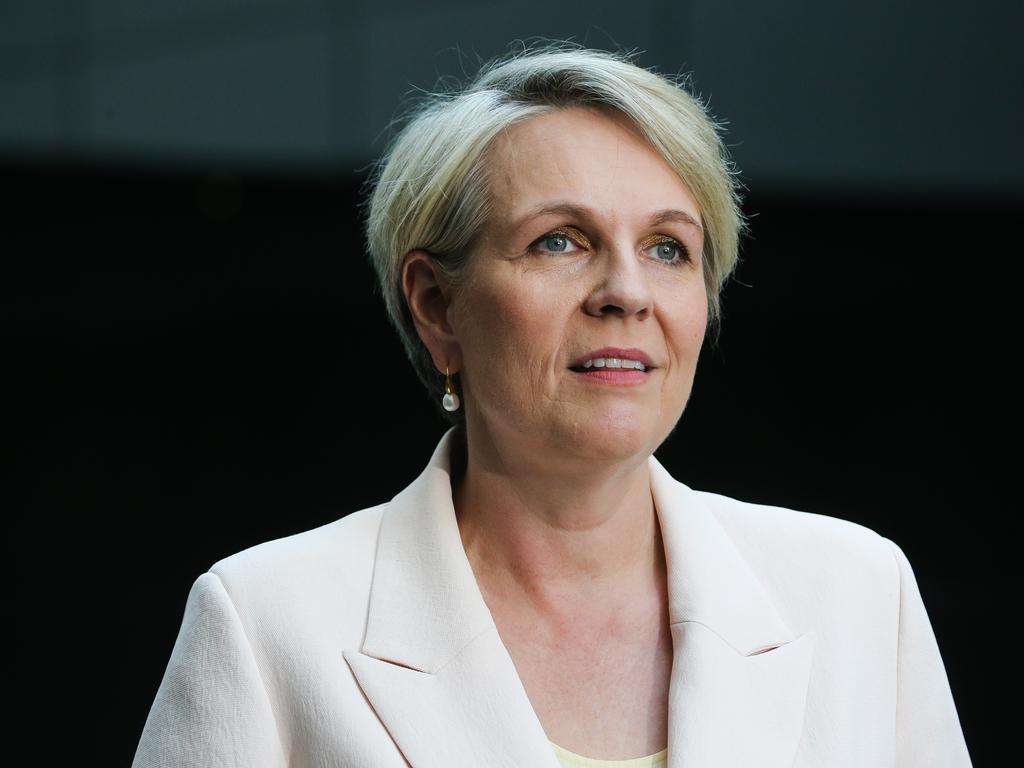



It would be nice to think the Blayney gold mine debacle resulted from a momentary lapse in concentration by a government with its eyes fixed firmly on the long-term national interest.